Barstow, California
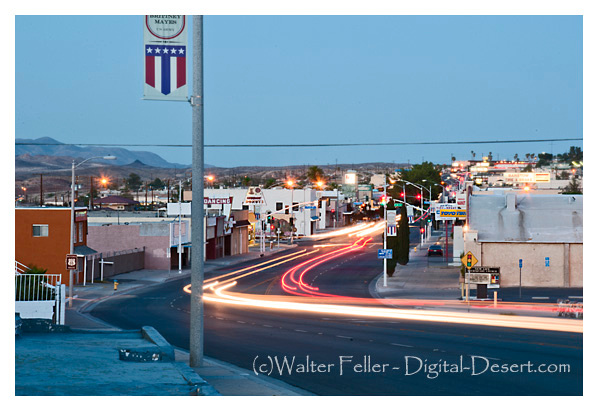
Named for William Barstow Strong, the 10th president of the Santa Fe Railroad.
Barstow is a Mojave Desert city located in the Mojave River valley of San Bernardino County, California. Its importance lies not in size or scenery, but in function: Barstow developed as a transportation, logistics, and service hub where railroads, highways, and desert corridors converge. For more than a century, it has operated as a gateway between Southern California, the interior Mojave, and the Colorado River corridor.
Setting
Region: Mojave River Valley / Central MojaveCounty / State: San Bernardino County, California
Landscape: Broad desert basin shaped by the Mojave River corridor
Water Logic: Mojave River (episodic surface flow, persistent groundwater)
Barstow sits at a strategic narrowing of the Mojave River corridor, where travel routes naturally converge before spreading east and west across the desert.
Why This Place Exists
Barstow exists because movement through the Mojave requires dependable junctions. Indigenous trails, wagon roads, railroads, and later highways all followed the same basic desert logic: water access, manageable grades, and corridor efficiency. Barstow formed where these paths overlapped, becoming a supply, transfer, and service point rather than a destination in itself.History
Before 1850:The Mojave River corridor was used for seasonal travel, trade, and resource access by Indigenous peoples, forming part of a wider desert movement network.
1850–1900:
Euro-American travel followed established corridor routes. With the arrival of the railroad in the late 19th century, Barstow emerged as a rail service point, replacing earlier river-adjacent camps and informal crossings.
1900–1945:
Barstow grew as a railroad town and regional supply center. The rise of automobile travel and the establishment of U.S. highways—most notably Route 66—reinforced its role as a stopover, maintenance, and hospitality town.
1945–Present:
Military installations in the surrounding desert, interstate highways, and logistics activity stabilized Barstow’s economy. While Route 66 faded as a primary highway, its legacy became a defining historical identity rather than an economic driver.
Transportation & Corridors
Highways: Interstate 15, Interstate 40, historic U.S. Route 66Rail: Atchison, Topeka and Santa Fe Railway (now BNSF Railway) Corridor Role: Central Mojave junction and logistics hub
Barstow functions as a hinge point where north–south and east–west travel routes intersect, making it one of the most persistent corridor towns in the Mojave Desert.
Related Pages
Mojave River CorridorRoute 66 in the Mojave Desert
East Mojave Travel Routes
DaggettYermo
Ludlow
Notes
Barstow is sometimes described as a “gateway” city, but historically it is better understood as a junction—a place defined by passage rather than settlement appeal. Its continuity over time is an indication of how little the underlying travel logic of the Mojave Desert has changed, even as technologies evolved.
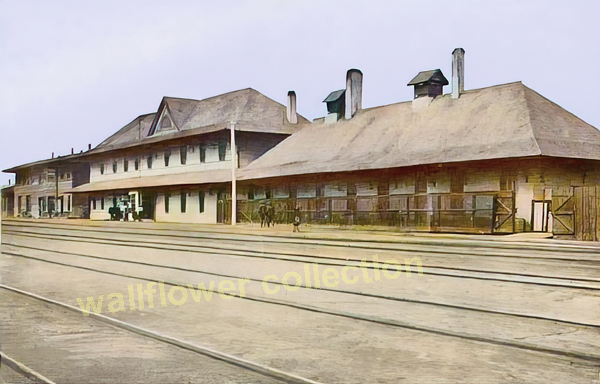
Railroad Development:
Barstow's history is closely tied to the development of the railroad. In the late 19th century, the Atchison, Topeka, and Santa Fe Railway (ATSF) played a crucial role in the city's growth. Barstow became a major railroad center and a division point for the ATSF.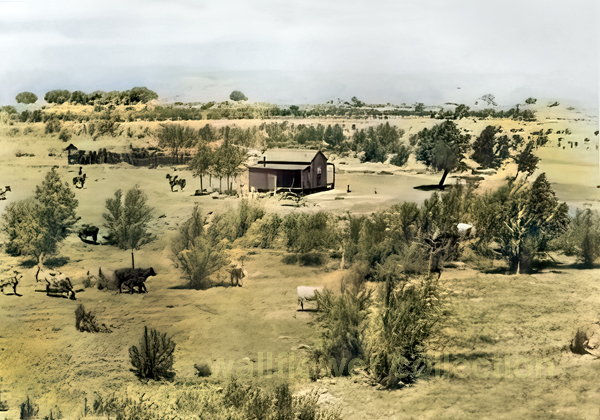
Waterman Ranch - circa 1884
Establishment of Barstow:
The town of Barstow was officially established in 1886. It was named after William Barstow Strong, then-president of the Atchison, Topeka, and Santa Fe Railway.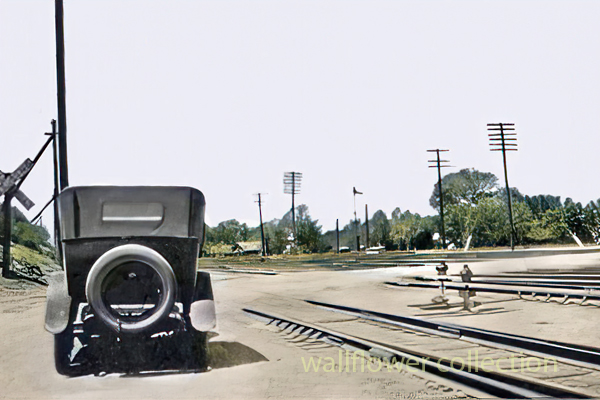
History of Barstow, California
Barstow, California, has a rich history that dates back to the late 19th century.Early Inhabitants:
Before European settlers arrived, the Barstow area was inhabited by Native American tribes, including the Vanyume people. These tribes had a rich cultural history in the region.
Railroad Development:
Barstow's history is closely tied to the development of the railroad. In the late 19th century, the Atchison, Topeka, and Santa Fe Railway (ATSF) played a crucial role in the city's growth. Barstow became a major railroad center and a division point for the ATSF.
Waterman Ranch - circa 1884
Establishment of Barstow:
The town of Barstow was officially established in 1886. It was named after William Barstow Strong, then-president of the Atchison, Topeka, and Santa Fe Railway.
Route 66:
Barstow gained further importance in the early 20th century with the establishment of Route 66, the famous "Main Street of America." The city became a popular stop for travelers along this iconic highway, boosting its economic development.Military Presence:
During World War II, Barstow played a role in supporting the war effort. The nearby Marine Corps Logistics Base Barstow was established in 1942 to provide logistical support for the Marine Corps.Economic Development:
Barstow's economy has historically been linked to transportation and logistics, thanks to its strategic location along major transportation routes. The city has served as a transportation hub for the movement of goods and people.Railroad Decline:
While the railroad industry was instrumental in Barstow's early growth, the decline of the railroads in the latter half of the 20th century had an impact on the local economy. However, the city has adapted and diversified its economic base over the years.Tourism and Landmarks:
Barstow remains a popular stop for travelers, particularly due to its location at the junction of Interstates 15 and 40. The city is home to several landmarks, including the historic Harvey House Railroad Depot, now the Barstow Harvey House, which serves as a museum and visitor center.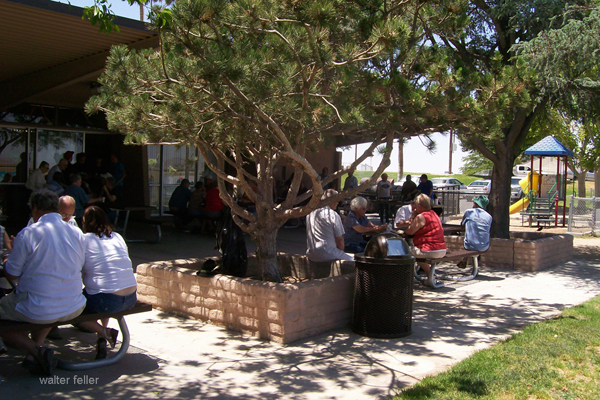
Cultural and Historical Preservation:
Efforts have been made to preserve Barstow's historical and cultural heritage. The Route 66 "Mother Road" Museum, located in Barstow, celebrates the history of the iconic highway and its impact on the region. Overall, Barstow's history reflects the interconnectedness of transportation, economic development, and the changing landscape of the American West over the past century.Barstow Weather
Waterman Mine
Barstow 1890
Barstow is situated at the junction of the California Southern and the A. &. P. Railway, eighty-two miles from San Bernardino and twelve miles from Daggett. It has an elevation of 1,900 feet. The population is about 300. The town is comparatively new. The climate is dry and clear with no fogs or dampness. There is a postoffice, telegraph, telephone and express offices, and daily stage for Calico, connecting with trains, as well as several stores carrying general merchandise, and a large railroad hotel. A silver mine and mill are to be found just north of this place.Barstow is situated at the junction of the California Southern and the A. &. P. Railway, eighty-two miles from San Bernardino and twelve miles from Daggett. It has an elevation of 1,900 feet. The population is about 300. The town is comparatively new. The climate is dry and clear with no fogs or dampness. There is a postoffice, telegraph, telephone and express offices, and daily stage for Calico, connecting with trains, as well as several stores carrying general merchandise, and a large railroad hotel. A silver mine and mill are to be found just north of this place.
History of Southern California
Lewis Publishing